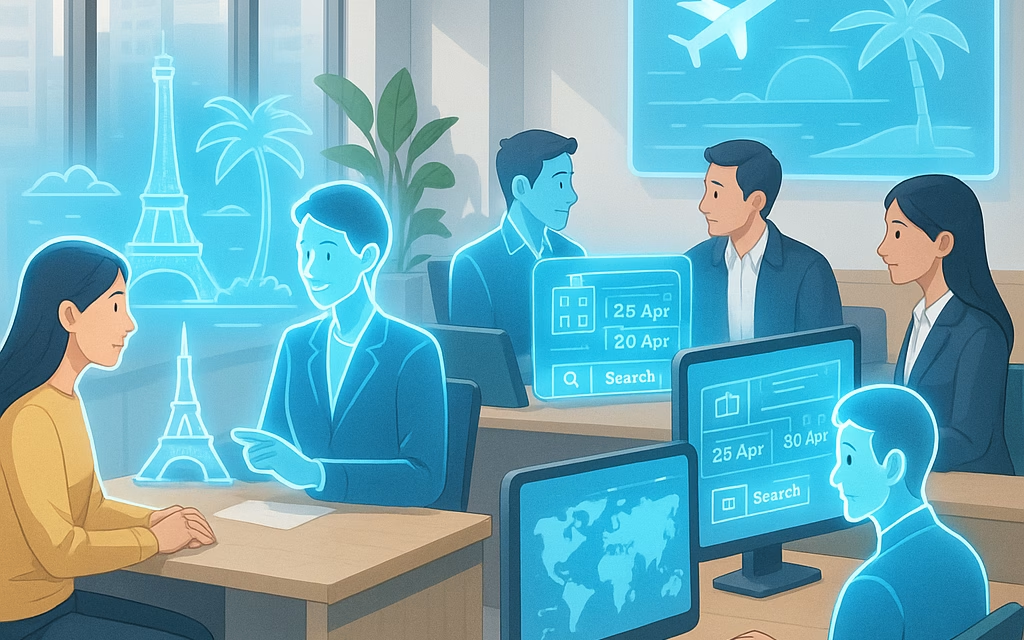July 15, 2025 – The travel industry is preparing for significant workforce changes as the impact of agentic and generative AI technologies begins to reshape how customers plan, book, and experience travel. Industry experts are warning that traditional travel roles may face unprecedented disruption as AI agents become increasingly sophisticated.
The Rise of AI Travel Agents
The travel sector is witnessing a fundamental shift as AI agents become capable of handling complex travel planning tasks that previously required human expertise. These intelligent systems can now process multiple variables simultaneously – from flight schedules and hotel availability to weather patterns and local events – to create personalized travel experiences at scale.
This transformation is part of a broader trend where AI could eliminate up to 50% of entry-level white-collar jobs within five years, according to industry experts, as AI agents increasingly act as junior employees across various sectors. The travel industry, with its heavy reliance on information processing and customer service, is particularly vulnerable to this shift.
From Hiring Surge to Strategic Integration
The AI workforce landscape in July 2025 shows a notable shift from the early-year hiring surges to more strategic deployment. Companies are now focusing on integration rather than headcount expansion, with AI continuing to reshape talent strategies across industries including finance, software, healthcare, and HR.
Travel companies are grappling with how to balance the efficiency gains from AI automation with the human touch that many travelers still value. The challenge lies in determining which aspects of travel planning and customer service can be effectively automated while preserving the personal connections that define exceptional travel experiences.
Preparing for the New Travel Ecosystem
As the industry adapts to this new reality, travel professionals are being encouraged to develop skills that complement AI capabilities rather than compete with them. This includes focusing on complex problem-solving, emotional intelligence, and specialized knowledge that AI systems cannot easily replicate.
The transformation represents both a challenge and an opportunity for the travel industry. While some traditional roles may become obsolete, new positions focused on AI management, personalized experience design, and human-AI collaboration are emerging. The companies that successfully navigate this transition will be those that can harness AI’s efficiency while maintaining the human elements that make travel memorable.
]]>
